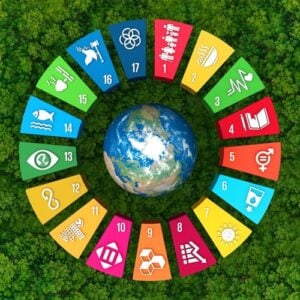For generations, development has quietly driven global progress, extending life expectancy, combating diseases, and enabling millions more girls to access education. However, the systems that once sustained human development are now under immense pressure. In 2024, global military spending reached a record US$2.7 trillion, yet security continues to deteriorate. The world faces overlapping crises, including climate change–fueled conflicts, rising debt, persistent inequalities, and geopolitical tensions, while resources to address these needs are dwindling.
At the 80th UN General Assembly, under Germany’s Annalena Baerbock, world leaders recognized that traditional development strategies are no longer sufficient. A bold reimagining of development is urgently required—one that integrates solutions, accelerates innovation, addresses root causes of crises and displacement, and is anchored in international cooperation and sustainable financing.
Germany’s partnership with UNDP provides a model for forward-looking multilateralism. In Gaza, UNDP, with German support, is providing emergency aid, including temporary shelters, short-term jobs, wastewater rehabilitation, and psychosocial counselling, offering immediate relief while laying the groundwork for long-term recovery. In Ukraine, Germany and UNDP, alongside the European Investment Bank, are installing decentralized renewable energy systems to keep hospitals, schools, and essential services operational while promoting a transition to clean energy amid widespread infrastructure destruction.
Beyond crisis response, Germany’s flexible core funding enables UNDP to strengthen development worldwide. Between 2019 and 2024, 816 million voters participated in elections, 84 countries advanced conflict prevention and peacebuilding, and 177 million people gained access to clean energy solutions. These achievements highlight the power of sustained investment, adaptation, and global collaboration in confronting complex challenges.
Investing in development abroad is not a trade-off against domestic prosperity—it is essential to global security. Addressing the root causes of forced migration, preventing conflicts, and protecting populations from climate and health crises ensures stability at home and abroad. Progress elsewhere is intrinsically linked to progress domestically.
The UN remains a crucial forum for these efforts, providing a platform for humanitarian aid and global negotiations. Despite escalating armed conflicts, military spending alone cannot guarantee security. History has shown that lasting peace is built on investing in people and societies. Current projections suggest global military spending could reach $6.6 trillion by 2035, yet allocating just 10 percent of the 2024 military budget—$230–280 billion annually—could eliminate extreme poverty worldwide.
As Germany reaffirms its partnership with UNDP and seeks a Security Council seat, the 80th UN General Assembly serves as a call to action. A secure and prosperous future depends on policies that recognize the central role of development in ensuring security, stability, and human progress, driven by bold international investment and cooperation.







